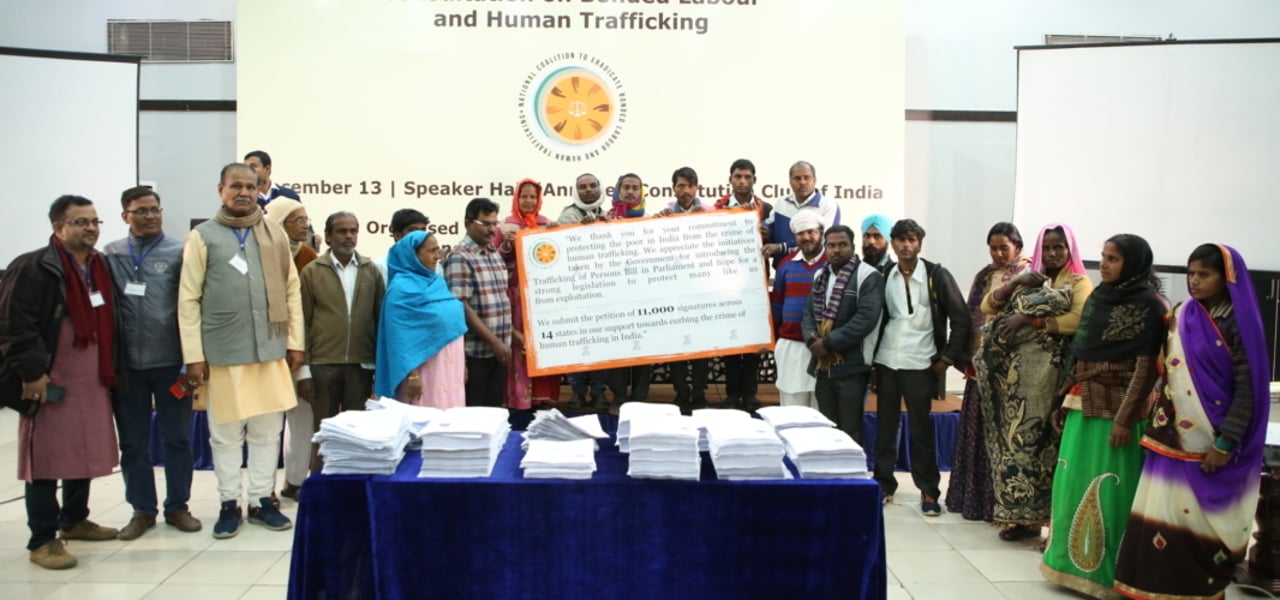12,000 Survivors Write to Indian PM on New Anti-Trafficking Bill
Summary:

Meera looked tiny behind the large wooden podium—bundled in her pink sweater and scarf, unrehearsed, and using a microphone for one of the first times in her life.
Slowly and confidently, she shared how, just one year ago, she was rescued from bonded labour slavery at a brick kiln thanks to local authorities and IJM’s partner NGO, Jai Bhim Vikas Shikshan Santsthan (JBVSS).
Another young woman shared about the intense physical and sexual violence she experienced after being trafficked into a forced marriage (another form of modern slavery).
Along with several other survivors, their brave voices brought the crimes of modern slavery to life at a Delhi event in December 2018 supporting new anti-trafficking legislation being reviewed in India’s parliament.
More than 100 survivors, community leaders and NGO staff gathered alongside Meera to show their support for the Trafficking in Persons (Prevention, Protection and Rehabilitation) Bill of 2018, which would help confront modern slavery across the country.
Anti-trafficking organizations also shared signed petitions from 12,000 survivors of bonded labour, sex trafficking and forced marriage from 14 Indian states. The sheer number of signatures illustrated the scale of this plight, and made a powerful statement in favour of the bill’s passing.
Dr. K Krishnan of the Foundation for Sustainable Development (FSD)—also an IJM partner—shared strengths of the proposed bill, including that it “makes the rehabilitation of survivors a basic right and provides a time-bound procedure for rescue, rehabilitation and repatriation. It makes the government accountable to implement the law at the district, state and national level.”
The new bill would build upon progress the Indian government has made over the last few years, like the establishment of police Anti-Human Trafficking Units (AHTUs), clearer reporting of trafficking cases in the National Crime Records Bureau, increased financial support for survivors of bonded labour slavery, and the release of “standard operation procedures” to help local authorities identify and rescue victims of trafficking and modern slavery.
Survivor voices were heavily influential as the bill was being drafted, especially in new provisions to improve education support, vocational training, healthcare, nutrition and mental health intervention for victims of human trafficking.
All of that makes a huge difference for survivors like Meera, who smiled radiantly after her speech thanks to the support she’s received.
“Main bahot khush hoon!” she gushed. (I am very happy!)
It’s a smile nine years in bondage couldn’t erase, and proof enough of the importance of fighting modern slavery so millions more can have their smile, too.